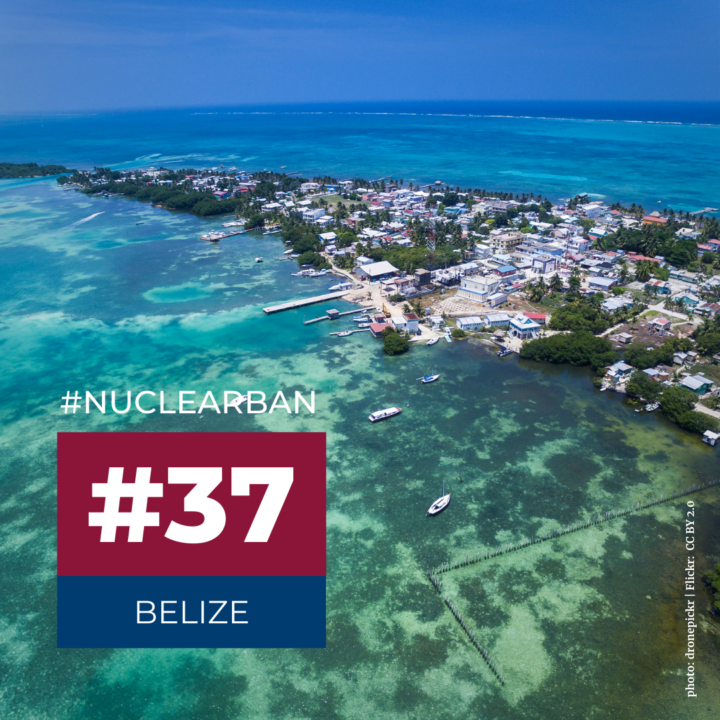Caribbean support for the Treaty on the Prohibition of Nuclear Weapons (TPNW) continues to grow, with Belize ratifying the landmark agreement on 19 May. Belize is the seventh member of the Caribbean Community, or CARICOM, to become a party, following Guyana, Saint Lucia, Saint Vincent and the Grenadines, Trinidad and Tobago, Dominica, and Antigua and Barbuda. Caribbean nations have been vocal supporters of the TPNW, reflecting their longstanding support for diplomatic efforts to achieve a more peaceful world free from the threat of nuclear weapons.
The TPNW was negotiated and adopted in 2017 with the support of 122 nations in response to the ever-deepening concern of the international community at the catastrophic harm that would result from any use of nuclear weapons. No state is immune to these consequences: people in neighbouring and distant states who have nothing to do with the conflict would suffer from the effects of radioactive fallout, climate disruption, and resource insecurity. Even a so-called “limited” regional nuclear war involving a small fraction of the world’s nuclear weapons would severely disrupt the climate and agricultural production, resulting in widespread famine.
Caribbean nations played an active and influential role in bringing the TPNW into being. In their opening statement to the negotiating conference in 2017, CARICOM member states argued that nuclear weapons have no utility in today’s world: “They are not useful deterrents but rather cultivate a state of insecurity and false defensiveness that only increases the chances of proliferation with devastating impact on us all, far beyond the parties directly involved in conflict.” They noted their particular vulnerability as small island developing states and warned of the “unparalleled harm” that nuclear weapons could unleash on humankind.
CARICOM member states have pledged to help stigmatise nuclear weapons by raising public awareness of the devastating humanitarian impacts of their use. As their 2017 statement noted: “We can work to change international and public attitudes regarding policies and practices that form the basis of the acceptance of nuclear weapons.” It is estimated that nine nations currently possess a combined total of more than 13,000 nuclear weapons, posing a unique existential threat to humanity and the planet. The TPNW establishes the first multilateral legal framework for the verifiable and irreversible elimination of all nuclear arsenals.
In addition to the seven CARICOM member states that have ratified the TPNW, three have signed it and are now completing their ratification processes: Jamaica, Grenada, and Saint Kitts and Nevis. Just 13 more ratifications globally are needed to bring the TPNW into force. Once this threshold is reached, nuclear weapons will be on the same legal footing as the two other categories of weapons of mass destruction, namely chemical and biological weapons, which have long been subject to comprehensive global bans.
In a statement to the United Nations in October 2019, CARICOM member states expressed alarm at “the continued reliance on and prevalence of nuclear weapons as a feature of security and military doctrines” and noted “the obvious trend towards abandoning longstanding principles that have guided the international community’s approach to nuclear disarmament and non-proliferation”. They said that this “overwhelming concern” had animated their active engagement in the negotiations that culminated in the adoption of the TPNW.
In June 2019, 10 Caribbean countries – Antigua and Barbuda, Belize, Grenada, Guyana, Haiti, Jamaica, Saint Lucia, Saint Kitts and Nevis, Saint Vincent and the Grenadines, and Trinidad and Tobago – participated in a forum in Guyana’s capital, Georgetown, to discuss the need for concerted regional efforts to promote swift entry into force of the TPNW. They described this as “a vital step towards achieving a world free of nuclear weapons”.






